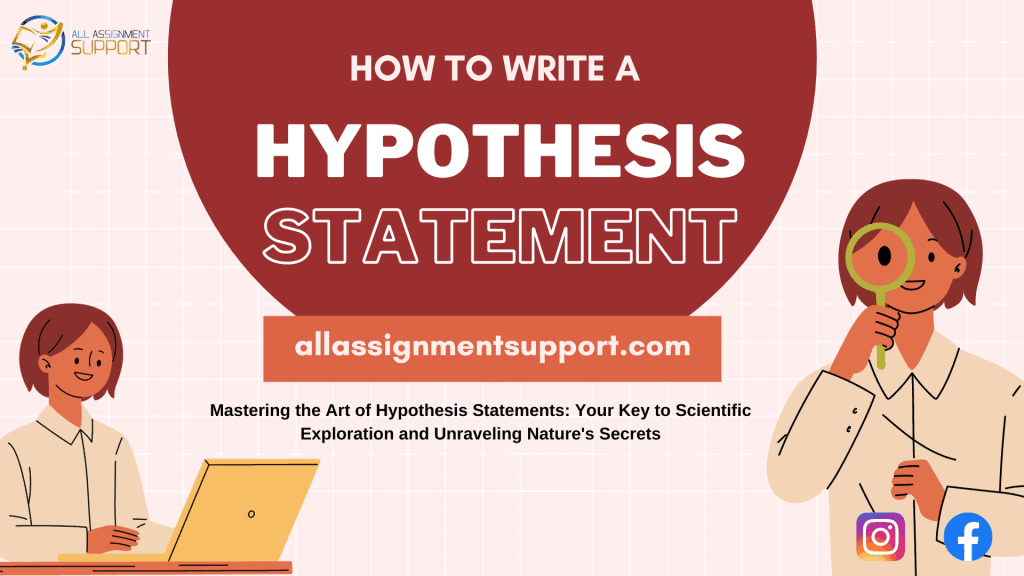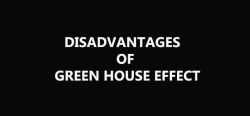Table of Contents
ToggleIntroduction
You have many parts added to your assignment paper, while it is the hypothesis that creates the crux portion of your white paper case studies or your research work. Through the hypothesis statement, you create the statement that defines the nature or crux of the document you plan to create. You must then cover the expected or predictable results of your research analysis.
Therefore, you must know how to write a hypothesis statement compellingly indeed. When you do not include a good hypothesis statement for your essays, the base element for an experiment or research gets missed.
It is highly essential that you know how to write a hypothesis statement in a manner that builds a foundation for your research work.
Henceforth, these statements must be curated with the utmost degree of precision and thoroughness. And, while you curate the hypothesis statements, you must be careful and persistent as you must portray intact statements that tally with the scope of the research paper you are aiming for.
In this article, let us have an overall know-how on how to construct hypothesis statements thoroughly.
Characteristic Features of Good Hypothesis Statements
These are the characteristic features of good hypothesis statements. Let us look at what these are:
1. Aim for a clarity of thought
You must aim for a clear and concise line of thought while you learn how to write hypothesis statements for your project, research, white paper case studies or assignment work. Here, you define what is the scope of the document. And this is done through well-drafted hypothesis statements. In a nutshell, the hypothesis statements must be clear, concise and precise.
2. Is your statement testable?
You must coin your hypothesis statements that define what you are going to do on your project or research work from start to finish. Therefore, you must coin your hypothesis statements that can predict the outcome or result of your research or projects you plan to do as a part of your college internships or assignment work.
3. Your hypothesis must only aim for a single issue nomenclature
In this guide on how to write a hypothesis in a crafty manner, this is something you must aim for. Your statements must only aim to address a single problem or the main topic of discussion. Here, you just define the crux of your assignment using 5-6 sentences that form your hypothesis.
4. Hypothesis statements must never be contradictory
The hypothesis statements that you write must never be contradictory. These statements must be mentioned clearly and simply. This is because you want everyone to understand what the scope or purpose of your assignment or project work is.
On the contrary, when you state hypothetical or contrary statements on your project work, it can confuse the minds of the audiences or end-users who go through your work in the first place.
What are the questions you must be asking yourself in order to come up with stellar hypothesis statements?
These are the questions you must be asking yourself or your team in case you do a group project when you coin stellar hypothesis statements. Here they are for your reference:
- Have you used clear and concise language while wanting to curate hypothesis statements? Or, have you used scientific jargon that is too difficult to understand for your audience?
- Can thesis statement be tested in congruence to your hypothesis? If yes, in what ways do you relate to each other?
- What are the explaining terms you would work on throughout your assignment or project work? Have you added an outlining statement that covers a part of your hypothesis?
- Does the theory include definite and indefinite variables? You can mention the same in your hypothesis, too.
- Do the lines of your hypothesis conflict with the nature or scope of your project?
These are the elements or components you look for and proofread to make sure you have come up with apt hypothesis statements that are tailor-made for your projects or assignments.
Types of Research Hypothesis
These are the types of research hypothesis categories you have to choose from. Let us move on to discover what they are:
1. Simple Hypothesis
A simple hypothesis presents a direct connection between two variables. One is a single dependent variable while the other is an independent one.
2. Complex
A complex hypothesis aims at connecting two independent variables and two dependent variables under the same line of tangent. You may have to use the required set of derivatives and equations while you write complex hypothesis statements or formulae.
3. Directional
A directional hypothesis aims at telling the audience what the outcome of the result would be. This involves including explanatory statements on how the participant does the experiment and what will be the expected result at the end of the experiment.
4. Non Directional
Via a non-directional hypothesis statement, you do not explicitly mention the expected result or outcome for an experiment or a derivation problem you aim to perform.
5. Associative
In an Associative Hypothesis, you define the interdependence between the two variables. At the same time, you also make an effort to explain to your audiences how you make changes in one of the variables that affects or impacts the other one.
6. Casual
When you make casual hypothesis statements, you reveal casually how the changes that are done to independent variables can affect the dependent ones.
7. Null
Through Null Hypothesis statements, you prove that there is no correlation between independent and dependent variables.
8. Alternative Hypothesis
You draw up alternative hypothesis statements to define the correlation that is pertinent between independent variables and dependent variables. Here, you also determine what can be the expected result or outcome from experimenting.
These are the different types of scientific hypothesis statements researchers use to bring correlation between variables that are independent of each other and the dependent variables to derive an equation or formula while performing a mathematical or scientific research analysis.
When you learn to differentiate between different types of hypothesis statements, it becomes easier for you to understand or implement them. Learning how to write a hypothesis statement in a crafty manner requires years of practice, dedication and perseverance you put into the style of writing.
Otherwise, you can ask a trusted partner like the All Assignment Support team to help you with your assignment, thesis or research projects. The team is well-equipped with Ph.D. scholars who can help you with any form of assignment and help you deliver projects like that of a pro.
How do you curate hypothesis statement in a systematic manner?
Are you a beginner and struggling with the nuances of how to write a hypothesis statement using a compelling style? Then, you must know the series of steps that help you to curate well-drafted hypothesis statements logically and engagingly.
Helping you understand the same via these pointers:
1. Question yourself
When you want to know how to write a good hypothesis using audience-engaging styles, then you must question yourself first. Only when you are convinced of a theory can you convince your audiences of the theory above or the scientific explanation you want to give them. Hence, the thumb rule is to question your mind about the kind of hypothesis you would plan to formulate.
Say, for instance, you want to perform a research experiment on Exercising vs. sleep; you must ask yourself, ‘How does exercising impact or affect my sleep?’
The answers must be the hypothesis statement you aim to recreate.
2. Collection of data
To know how to write apt expressions that suit the nature of your hypothesis, you must collect data or information from as many resources as possible. You may start collecting data from statistics, interview snippets and other forms of academic journals.
Again, web-based info gets you all of the info clustered under the same roof. Otherwise, you can read through books that have literary info pertaining to the subject matter you plan to do your thesis.
When you gather info from reliable resources, forming a research-appropriate hypothesis statement is not going to be a hassle at all.
3. Creation of answers for your hypothesis
Having created curiosity or intrigue by questioning your audiences via a hypothesis, you must also answer the audiences on what you plan to do in your experiment or research. The expected results or outcome of your experiments must also be stated in your hypothesis in a clear-cut and precise manner.
Say, let us take the previous example itself:
Here is your topic: “How does exercising impact your quality of sleep?”
Answer to the topic- “Exercising helps you cope with sleeping disorders like insomnia and other sleep-related complaints, and this way, you reduce your dependency on taking sleeping pills to allow you to sleep.”
Here, you combine your question and answer to formulate your hypothesis in a clear and easy-to-understand manner.
4. Creation of hypothesis statements
You may have to combine the question and the answer to form crystal-clear hypothesis statements for the experiment or project you have taken up for your research thesis.
The question is whether or not exercising helps improve the quality of your sleep, and the answer lies in how exercising addresses sleep-related disorders.
You combine the intrigue and the answer to form your hypothesis.
5. Exploring differences of opinion for your experiment or project
When you have an experiment or a research analysis to be performed, you must dissect the subject’s point of view from all sides. In other words, you must look at it from all directions or perspectives you can think of.
Jot down what can be the independent variables for the particular experiment and what are the dependent variables for the same.
Using a mix of dependent and independent variables alone, can you deduce an equation or formula that is tangential to the experiment you want to perform?
In a nutshell, you must explore differences of opinion or opposing points of view that may fall in the way of your experiment. After considering every factorial inch, will you be able to know how to write a hypothesis for your research paper.
6. Null or Alternative hypothesis creation
When you create null or alternative hypothesis statements, you help audiences discover an alternative course of action when neither differential nor constant variables work in favor of the experiment or research you keep performing throughout your thesis study.
Sometimes, the differential or constant variables you coin at the beginning of your experiment might not work in favor of your thesis. Then, you may have to deduce alternative variables for the experiment to run smoothly.
You must also draw up a null hypothesis that states a situation in which neither of the variables is going to work. The alternative hypothesis directs the audience to the alternative variables or course of action you plan for your experiment.
How do you create strong hypothesis for your research papers?
In order to know how to write a hypothesis for a research paper, you must understand what the components for a hypothesis are. In this segment, we are going to have an overview into what different components or elements of a hypothesis are. Helping you get started with the same:
1. Stating the topic
For you to create a great impact on the minds of your audiences, you must create a hypothesis that is catchy, audience-engaging and highly compelling. This way, you create a striking impression on the minds of your readers who would want to go through your research or academic papers.
Therefore, for the hypothesis to be a good one, you must first state the title of the topic. The title of the topic must clearly define the scope or nature of the theme or topic you plan to take up for your research or survey.
2. The What-If components
Once you define the topic in a well-placed manner comes the next important step. Here, you must define the what-if components that may affect or favor your experiment intriguingly.
Here, you mention the differential and constant elements that can impact the outcome or result of the experiment or case studies you plan to take up.
3. Outcome of the result
A good hypothesis statement is never complete when you do not state the expected result or outcome you want to derive out of your experiments, case studies or thesis work. Here, you explicitly mention to your audiences what the expected result or outcome is going to be from your experiment. The outlining of the result or outcome, therefore, covers your hypothesis itself.
Examples of Hypothesis statements
You have seen the scope and importance of hypothesis statements. You have an overall understanding of how to write a good hypothesis statement in a step-by-step manner.
Alongside, the components that are included in a hypothesis have also been discussed with you in a nutshell. Here comes the next important step. You must know proper examples of how hypothesis statements are drawn up on your essay papers.
Read Also: Social Issues Research Paper Topics
Here are 5 solid examples of hypothesis statements in your essay or research paper:
- When you eat broccoli or berries, your immunity levels improve as these are rich in Vitamin A and Vitamin C, respectively.
- When you add the right kind of fertilizers or organic compost to your garden spaces, your plants can grow better.
- Brushing your teeth every day prevents the formation of cavities.
- Students who eat breakfast every day concentrate better at school than those who skip their breakfasts.
- Employee’s productivity levels improve when they take adequate breaks in between work.
Concluding Lines
We have seen several aspects of how to write a good hypothesis clearly and concisely. The scope and importance behind why writers or research scholars coin good hypothesis statements have been described here.
On a deeper level of understanding, we have touched upon aspects of how to write a hypothesis for a research paper in a step-by-step manner. The elements or components of a hypothesis have also been illustrated to you in an easy-to-understand manner. With this, we come to the end of this online segment.
Frequently Asked Questions or FAQs
1. Why is a hypothesis needed for a research document?
A hypothesis defines the nature or scope of the research project or a thesis segment you plan to take up. Here, you have the topic mentioned, and the writer includes the set of differential or constant variables that may be used for the formula or experiment they do. The expected result or outcome of the document also covers the hypothesis. In a nutshell, a hypothesis forms the crux or summary of what you plan to do in research!
2. What is the length of a hypothesis?
For a detailed engineering or research paragraph, a hypothesis can be a paragraph comprising 7-8 lines describing the nature and scope of your document. For an essay document, the hypothesis is renamed as a Thesis statement. And this covers 3-4 lines of your Primary Introduction.
3. Does a good hypothesis make a real difference to my essay?
A hypothesis is the initial segment your audiences or readers go through when they look at your assignment work or project-related booklet. Therefore, the hypothesis must be done in a clear and well-defined manner.
Here, the writer cannot be beating around the bush. They must clearly define what the project title is and what outcome is expected out of the same.
4. Is professional help needed for curating hypothesis?
If you are a newbie in the field of curating compelling hypothesis statements, then you can hire professional help or assistance in getting the job done. Researchers who are already a pro in the field may have gathered enough data from the web and other literary resources to help you with a thorough and professional job.
- Can a hypothesis change during the research process?
A hypothesis is a proposed explanation based on existing knowledge. As new data is collected or analyzed, it’s common for hypotheses to be refined, adjusted, or even discarded based on emerging evidence. Flexibility in adapting hypotheses is crucial for robust research.
- Should a hypothesis always be proved or confirmed?
Not necessarily. Hypotheses are formulated to be tested and analyzed. Even if the results don’t support the initial hypothesis, it still contributes to scientific knowledge. Sometimes, the data collected leads to unexpected conclusions or opens new research paths.
- Can a hypothesis be based on assumptions or personal beliefs?
Ideally, hypotheses are based on existing knowledge, empirical evidence, and logical reasoning rather than assumptions or personal beliefs. Objectivity and empirical support are fundamental to a strong hypothesis.
- Is there a standard structure for a hypothesis statement?
While there’s no rigid template, a hypothesis statement typically includes an assertion or prediction about the relationship between variables and is often written in an “If…then…” format, highlighting the expected outcome based on the proposed relationship.











